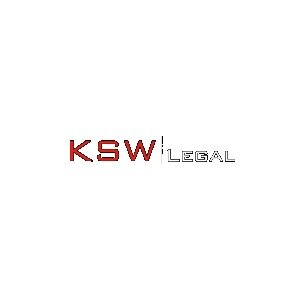Best Oil, Gas & Energy Lawyers in Poland
Share your needs with us, get contacted by law firms.
Free. Takes 2 min.
Or refine your search by selecting a city:
List of the best lawyers in Poland
About Oil, Gas & Energy Law in Poland
Poland's energy sector has undergone significant transformation in recent decades, characterized by a shift from coal dependency to more diverse and sustainable energy sources. The oil, gas, and energy industry is a crucial component of the Polish economy, contributing to both national security and economic growth. With vast reserves located primarily in the Baltic Sea and its onshore resources, Poland has made strides in developing its oil and gas resources. Additionally, there is an increasing push towards renewable energy and energy efficiency. The legal framework governing this sector in Poland is complex and includes both national and EU regulations, addressing everything from exploration and production to environmental protection and consumer rights.
Why You May Need a Lawyer
There are several scenarios in which you might require legal assistance in the oil, gas, and energy sector in Poland. These can include:
- Exploration and Production Licensing: Navigating the licensing process for exploration and production of natural resources can be complex and time-consuming, requiring legal expertise.
- Contractual Agreements: Drafting, negotiating, and reviewing contracts related to the sale, transportation, or storage of oil and gas require precise legal oversight to ensure compliance and protect interests.
- Regulatory Compliance: Ensuring that operations are in compliance with both Polish and EU environmental and safety regulations is crucial, necessitating legal guidance to avoid penalties and sanctions.
- Dispute Resolution: Disputes may arise between companies, or with regulatory bodies, requiring legal intervention to mediate or litigate potential conflicts.
- Renewable Projects: With the increasing focus on renewable energy, legal advice is often needed for project development and implementation in compliance with legal standards.
Local Laws Overview
Several key aspects of local laws are particularly relevant to the oil, gas, and energy sector in Poland:
- Energy Law 1997: This forms the backbone of Poland's energy policy, regulating energy enterprises, tariffs, and consumer protection.
- Geological and Mining Law 2011: It governs the exploration and extraction of mineral resources, outlining licensing procedures and safety rules.
- Environmental Protection Act 2001: This act addresses the environmental regulation of the energy sector, enforcing standards to prevent pollution and promote ecological safety.
- Renewable Energy Sources Act 2015: Focused on the development and promotion of renewable energy projects, supporting the legal framework for green energy investment and operation.
- EU Regulations: Poland, as an EU member, must adhere to EU regulations concerning competition, state aid, and environmental standards, which directly impact its energy policies.
Frequently Asked Questions
What is the current state of the oil and gas industry in Poland?
The industry is actively evolving, with ongoing projects in exploration and production, while facing challenges such as balancing energy needs with environmental sustainability.
Is Poland focusing more on renewable energy sources?
Yes, Poland is increasingly investing in renewable energy to reduce its carbon footprint and comply with EU directives, with significant developments in solar, wind, and even nuclear energy projects.
How can I obtain a license for oil and gas exploration in Poland?
Obtaining a license involves a regulatory process that includes application submission, environmental assessments, and compliance with both Polish and EU regulations, requiring legal assistance to navigate.
What are the typical legal issues faced in the energy sector?
Common issues include regulatory compliance, environmental impact challenges, licensing disputes, and contractual disagreements, often requiring legal intervention.
How does EU law affect Poland's energy policy?
EU directives and regulations heavily influence Poland's energy sector, mandating compliance with environmental standards, competitive practices, and sustainable energy development.
Are there incentives for investing in renewable energy in Poland?
Yes, the Polish government offers various incentives and subsidies to promote renewable energy investments, aimed at fostering sustainable development within the sector.
What role does the Polish government play in the energy sector?
The government is deeply involved in regulation, policy-making, and setting strategic targets for the sector, actively promoting diversification and sustainability.
Can foreign companies invest in Poland's energy sector?
Yes, foreign investment is encouraged, although it must comply with both local and EU regulations, with specific attention to environmental and competitive fairness standards.
What legal entities govern the energy sector in Poland?
Key entities include the Ministry of Climate and Environment, the Energy Regulatory Office, and the State Mining Authority, all overseeing various aspects of the sector's legal framework.
What should I consider when drafting energy-related contracts?
Contracts should be comprehensive, covering regulatory compliance, risk management, pricing structures, and dispute resolution protocols, often necessitating specialized legal advice.
Additional Resources
For more information and assistance, consider reaching out to the following resources:
- Ministry of Climate and Environment: Provides regulatory guidance and policy directions.
- Energy Regulatory Office (URE): Oversees compliance with energy law and consumer protection.
- State Mining Authority: Responsible for mining operations and safety regulations.
- Polish Geological Institute: Offers information on exploration activities and geological assessments.
- European Commission Energy Portal: Source for EU policies affecting the energy sector in Poland.
Next Steps
If you require legal assistance in the oil, gas, and energy sector in Poland, it is advisable to consult with a lawyer or legal firm specializing in this field. Begin by:
- Identifying your specific legal needs and challenges.
- Researching legal professionals with a proven track record in energy law.
- Scheduling consultations to discuss your case and understand potential legal pathways.
- Considering membership in industry associations, which can provide additional insights and support.
Taking these steps can help ensure that you receive the guidance necessary to effectively navigate Poland’s complex legal landscape in the oil, gas, and energy sectors.
Lawzana helps you find the best lawyers and law firms in Poland through a curated and pre-screened list of qualified legal professionals. Our platform offers rankings and detailed profiles of attorneys and law firms, allowing you to compare based on practice areas, including Oil, Gas & Energy, experience, and client feedback.
Each profile includes a description of the firm's areas of practice, client reviews, team members and partners, year of establishment, spoken languages, office locations, contact information, social media presence, and any published articles or resources. Most firms on our platform speak English and are experienced in both local and international legal matters.
Get a quote from top-rated law firms in Poland — quickly, securely, and without unnecessary hassle.
Disclaimer:
The information provided on this page is for general informational purposes only and does not constitute legal advice. While we strive to ensure the accuracy and relevance of the content, legal information may change over time, and interpretations of the law can vary. You should always consult with a qualified legal professional for advice specific to your situation.
We disclaim all liability for actions taken or not taken based on the content of this page. If you believe any information is incorrect or outdated, please contact us, and we will review and update it where appropriate.
Browse oil, gas & energy law firms by city in Poland
Refine your search by selecting a city.

















